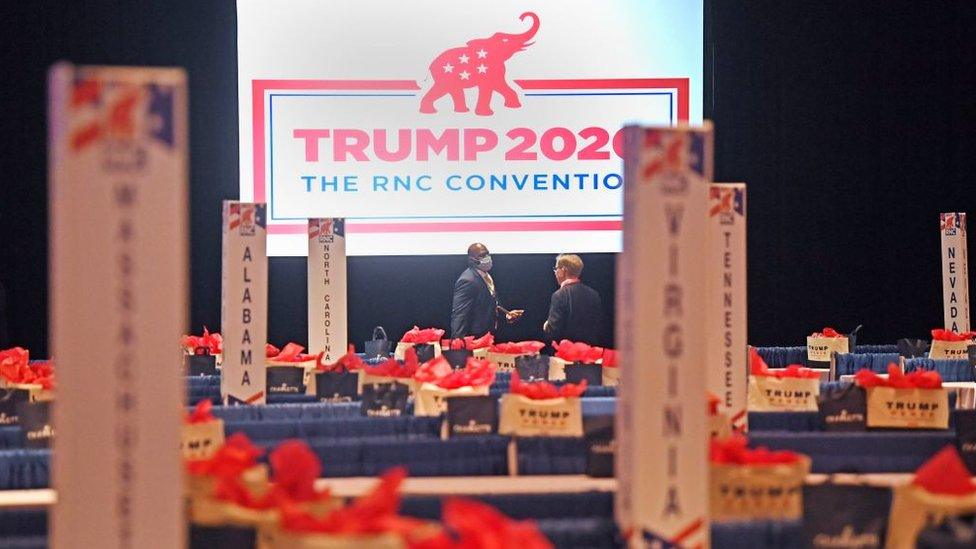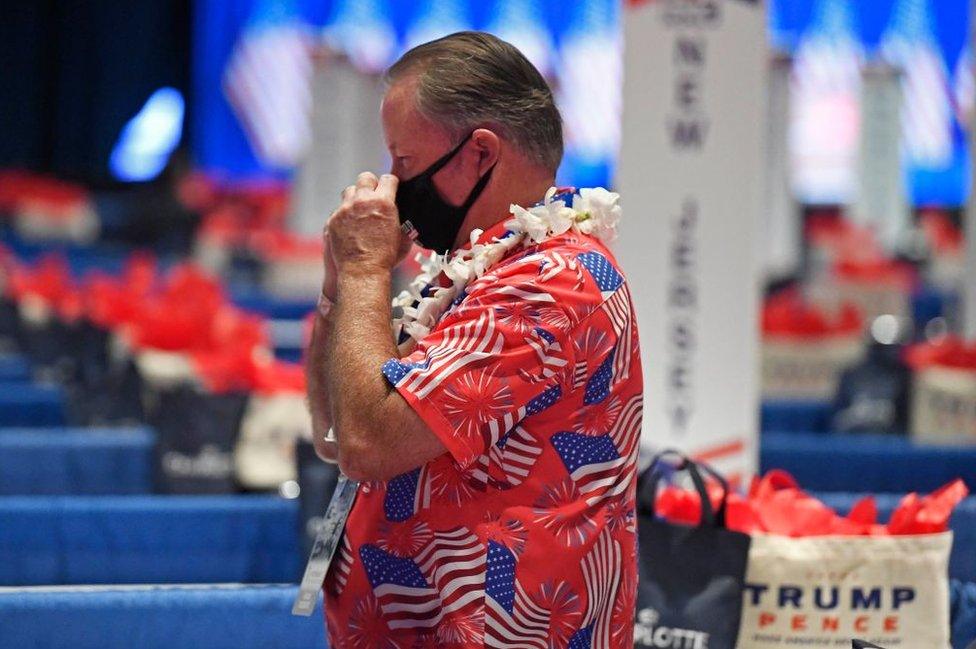RNC 2020: The Republican Party now the Party of Trump
- Published

Chalk this up as one more example of how the Republican Party has become the Party of Trump.
One of the traditional duties of the delegates to the quadrennial national party conventions, both Democratic and Republican, is to adopt a platform stating their policy preferences and principles.
These documents - akin to British party manifestos - are typically the subject of intense haggling and debate among the delegates, but are largely ignored by the candidates themselves, unless opponents decide to highlight a portion they think general-election voters will find extreme or unpopular.
Even with the coronavirus pandemic reshaping political conventions this year, the Democrats adopted a 91-page document with headings such as "Healing the Soul of America" and "Restoring and Strengthening Our Democracy". The party's liberal wing expressed some displeasure with the absence of language endorsing universal healthcare or the "Green New Deal" environmental plan.
The Republicans, on the other hand, decided to scrap the whole thing entirely.
Instead, the delegates gathering for the limited in-person convention in Charlotte, North Carolina, passed a one-page resolution stating that they weren't going to have a new platform, but instead the party "has and will continue to enthusiastically support the president's America-first agenda".
The delegates said they made this decision because they did not want their reduced number in Charlotte making policy decisions for the entire party.

The resolution also took some swipes at the media for their coverage of a June decision by the party's executive committee to adopt the 2016 platform as-is in 2020.
While that might seem a reasonable decision given the circumstances, doing so without any changes meant the document included shots meant for the then in-power Democrats, like "all international executive agreements and political arrangements entered into by the current Administration must be deemed null and void as mere expressions of the current president's preferences".


At the time, Trump tweeted out that he wanted "a new and updated platform, short form, if possible" - but that was a desire the delegates apparently ignored.
Earlier this week, however, the Trump campaign did release its own bullet-point outline of the president's second-term agenda.
The list was a combination of the concrete ("allow 100% expensing deductions for essential industries... who bring back their manufacturing to the US"), the vague ("return to normal in 2021" and "teach American exceptionalism"), the already existing ("cover all pre-existing conditions") and the unrealistic ("create 10 million jobs in 10 months" and "wipe out global terrorists who threaten to harm Americans).
It included more money for law enforcement, a crackdown on "violent extremist groups like Antifa" and the oft-promised, yet-to-be-delivered "world's greatest infrastructure system".
It reprised old 2016 campaign slogans, like draining the "globalist swamp", but made no mention of that centrepiece of Trump's first presidential bid, the border wall with Mexico.
If voters want the party itself to provide any more details on these and other policies, however, it seems they'll have to wait for the next Republican convention - in 2024.
